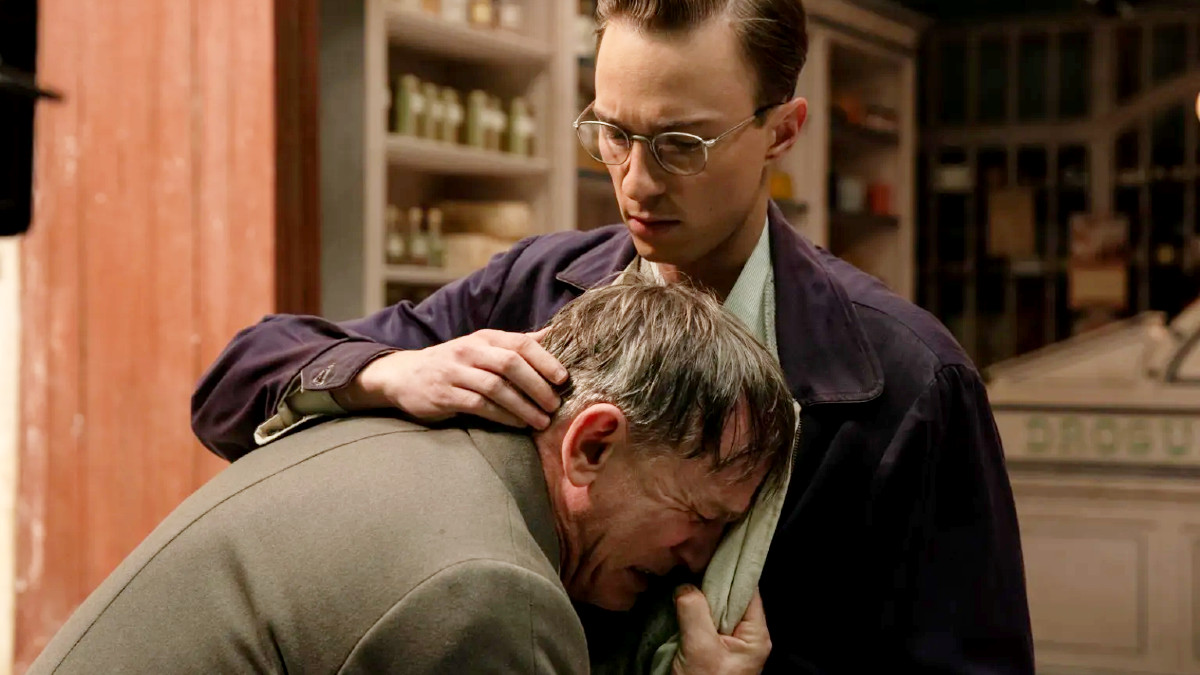Daniel Craig is a captivating mess in Luca Guadagnino’s ‘Queer’
3.5/5 cigarettes

Director Luca Guadagnino (Call Me By Your Name, Bones and All) loves his gays. He will serve the queer community until his dying breath, and I am here to say that I am grateful for his honorable service. However, I am not entirely satisfied with Queer.
Daniel Craig is, of course, incredible, as always. He is sorrowful, pleading, and a downright mess as William Lee in William S. Burroughs’ semi-autobiographical trip through Central and South America. His intriguing personality and behavior captivated me, but I was also left perplexed by his lack of resolution.
Drew Starkey is a surprising but undeniable spectacle as Eugene Allerton, based on the real-life Adelbert Lewis Marker, who enthralled Burroughs in postwar Mexico City with his beauty and grace.
What threw me about this film is how abstract the narrative is. We follow Lee through his routine in Mexico City as a gay man on the prowl with a bottle of tequila in his hand at all times. He spots Allerton across the street, and it is lust at first sight. Lee is obsessed with Allerton, and Allerton is only tepid about Lee. This dynamic is hard to watch as Lee begs for Allerton’s attention.
Drew Starkey is hard to pin down in this soulful, unrequited love story. Told from Lee’s perspective, as the audience, we’re never given insight into Allerton and therefore only understand him through the pitiful hot and cold emotional lashing he gives Lee. Is Allerton queer? Bi? Bi-curious? Is he in it for a free trip through South America? It’s tough to know his motivations, which keeps you on the edge of pity for the lovestruck Lee.

Yet, there’s less room to empathize with Lee when his behavior is so depressingly motivated by selfishness, addiction, and arrogant loneliness. I empathize with the struggle of being queer at that time; I know it was as hard and dangerous as it is now for the trans community of 2024. However, I don’t think that excuses the unsettling entitlement that Lee feels towards Allerton.
Moving from one ‘chapter’ to the next was a nice touch to structure the prolonged infatuation Lee feels. Although, without character development for Allerton or an arc for Lee, I felt like we were mostly vibing for two hours instead of watching a narrative unfold. Aside from the ayahuasca scene bringing an end to their adventure, not much actually happens.
I haven’t read William S. Burroughs’ novel Queer, but from how this film is told, I would assume it’s a very internal story told through thoughts and feeling rather than action, which makes showing that journey harder to do without narrating in film. If you’ve read the novel, perhaps you’ll understand more of it than I did. As a predominant member of the Beat Generation (Beatniks), I’m sure the work is incredibly nuanced.
From what I understand of the Beat movement, the narratives took on a very loose, experimental structure, which explains where some of my hesitation comes from because it isn’t a style I am familiar with. There was a lot of experimentation with drugs, sexuality, and composition, which questioned the status quo established post-war. It was an extremely beneficial movement for the time. Yet, does this adaptation translate into modern storytelling? Can this style prove effective in our landscape today?
Guadagnino and screenwriter Justin Kuritzkes (Challengers) twist dream sequences into the narrative structure, adding some clarity and some confusion. In particular, the final dream gave me the impression of mourning and moving on; however, the film’s final scene offered the contrary impression of Lee’s emotional space. The musical accompaniment was peculiar. I enjoyed the score and even some of the hits they chose as the soundtrack, but then there were scenes where the song choice made no sense.
The vibes were there, but I’m not sure that the story was strong enough—Queer leaves you walking away in a daze.
Have a tip we should know? tips@themarysue.com